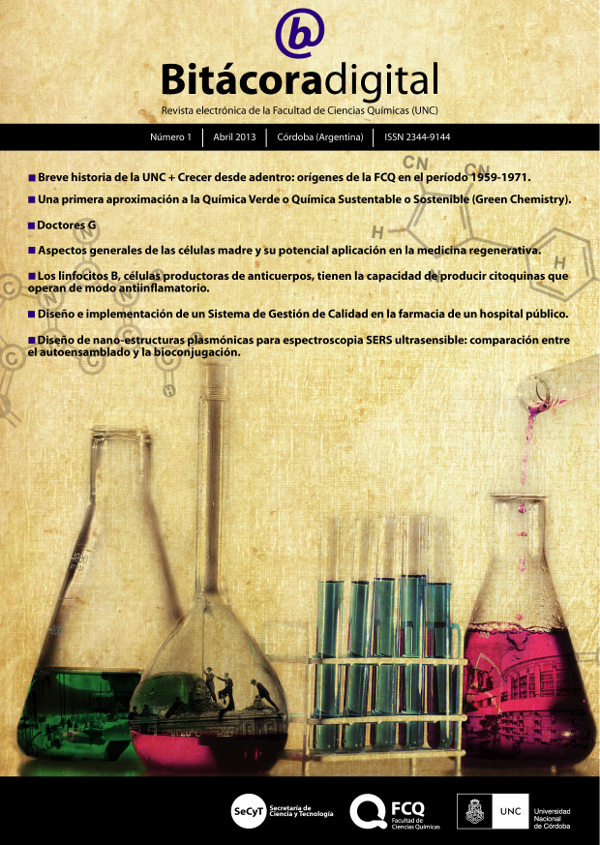Aspectos generales de las células madre y su potencial aplicación en la medicina regenerativa (General overview of stem cells and their potential application in regenerative medicine)
Resumen
Las células madre son células especializadas que poseen la capacidad auto-renovación y al mismo tiempo pueden generar al menos un tipo de célula madura diferenciada. Representan un pilar fundamental durante la vida de todos los vertebrados. En los últimos años muchos estudios se han focalizado en la investigación con células madre debido a su potencial aplicación en terapia clínica y a que constituyen una herramienta útil en el estudio de mecanismos moleculares del desarrollo aún no determinados. Existen distintos tipos de células madre que se diferencian entre sí por su capacidad de auto-renovación y su plasticidad. Entre ellas las células madre embrionarias (ESCs) son las que presentan mayor capacidad de auto-renovación, plasticidad y regeneración tisular, no obstante debido a que su obtención implica la destrucción de embriones humanos, su uso genera grandes debates tanto a nivel científico como en la sociedad en general. El surgimiento de las células madre pluripotentes inducidas (iPSCs) generadas a partir de células somáticas adultas, ha permitido superar los aspectos éticos asociados al uso de las ESCs. El siguiente artículo intenta brindar un panorama general acerca de los diferentes tipos de células madre, haciendo hincapié en las iPSCs y los últimos avances en medicina regenerativa mediante el uso de células madre.
Stem cells are specialized cells that possess the capacity to undergo self-renewal while maintaining at the same time the ability to give rise to at least one or more differentiated or mature cell types.They represent a fundamental cornerstone during the life of all vertebrates. Much attention has been focused on stem cells because of their wide potential for therapeutic applications and their potential for unraveling molecular mechanisms of development. The major characteristics of stem cells, self-renewal and potency, differ between various stem cells. Embryonic stem cells (ESCs) represent the gold standard stem cell with the greatest potential to offer in terms of immortality, plasticity and tissue regeneration; however since to obtain ESCs requires the destruction of human embryos, their use has generated controversy in both the scientific and the general community. The creation of induced pluripotent stem cells (iPSCs) by direct reprogramming of somatic cells allowed to overcome the ethical controversies of destroying an embryo for generating ESCs. This article attempts to provide an overview of the different types of stem cells, putting special attention on the iPSCs andthe latest advances in regenerative medicine.
Descargas
Número
Sección
Licencia
Licencia Creative Commons BY NC
Usted es libre de:
- Compartir — copiar y redistribuir el material en cualquier medio o formato
- Adaptar — remezclar, transformar y construir a partir del material
- La licenciante no puede revocar estas libertades en tanto usted siga los términos de la licencia
Bajo los siguientes términos:
-
Atribución — Usted debe dar crédito de manera adecuada, brindar un enlace a la licencia, e indicar si se han realizado cambios. Puede hacerlo en cualquier forma razonable, pero no de forma tal que sugiera que usted o su uso tienen el apoyo de la licenciante.
-
NoComercial — Usted no puede hacer uso del material con propósitos comerciales.

